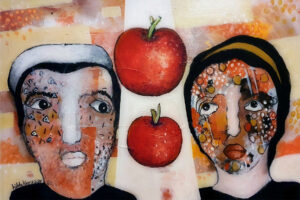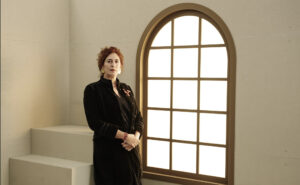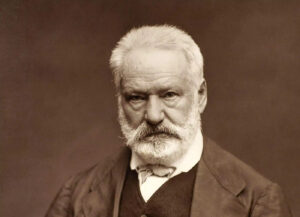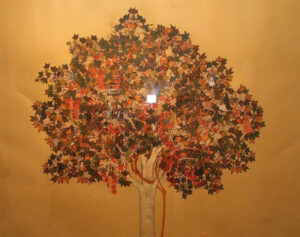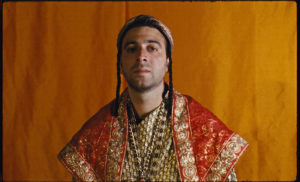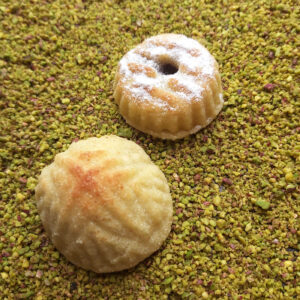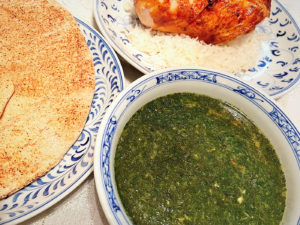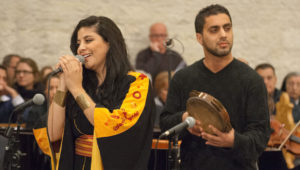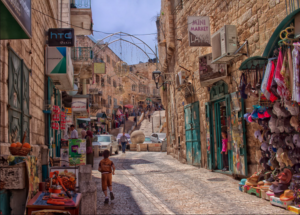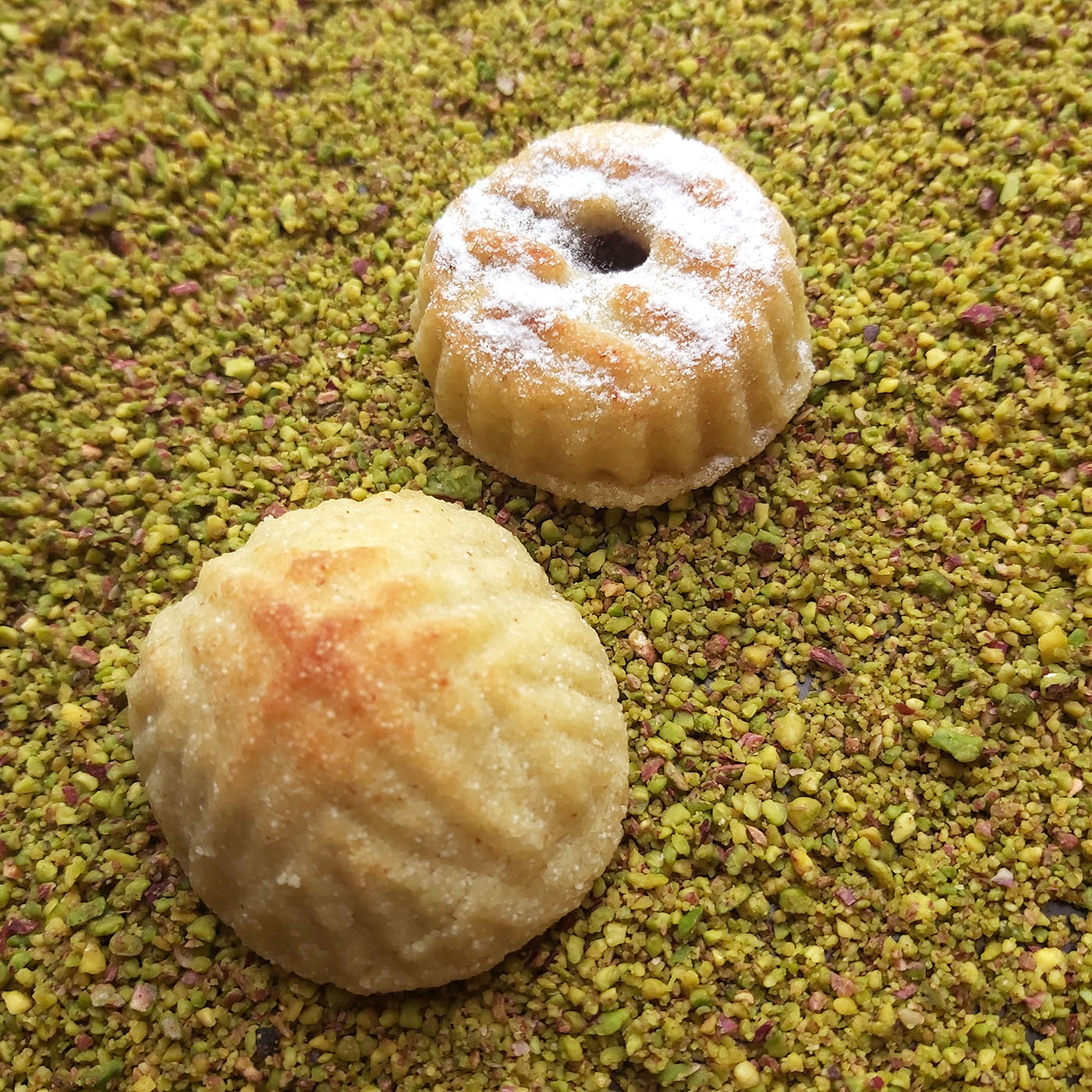
A religious celebration food….or simply a sweet treat?
Fadi Kattan
In this region of the world, discussions are plentiful on belonging, communities and religious groups. This month, the three monotheistic faiths celebrate a feast, Pesach, Easter, Eid el Fitr, all centered around Jerusalem — the only city in the world to carry such charged religious symbolism interweaving all three faiths.
In Palestine, little sweet treats, ka’ek bil ajwa and ma’moul bil joz come to liven up these celebrations, with their delicate semolina dough and flavorful date and walnut fillings. Those two little sweets tell stories of artisanship, art, transmission and common celebrations.
From the utensils used to the art of making those delights, the essence is transmission. Some families hold onto the wooden molds used for the ma’moul from generation to generation, with that distinctive star and sun shaped carvings…possibly a much older reference to the pagan gods and goddesses of the area?
Those sweets go back, per certain claims, to Pharaonic Egypt. Others credit their symbolism to Jewish, Christian and Muslim faiths.
In some neighborhoods, the women gather together to make them in groups, while in other families, each does her own and during the ritual house visits to wish well onto thy neighbor, they display the art of their decorated ka’ek and ma’moul, competing for the title of most beautiful and tastiest treat of the year!
These little treats celebrate each home in Palestine and beyond around the feasts and I find this commonality and gathering spirit of ka’ek and ma’moul a powerful symbol of fraternity among the different faiths.
And yet…
Why don’t we look at it differently?
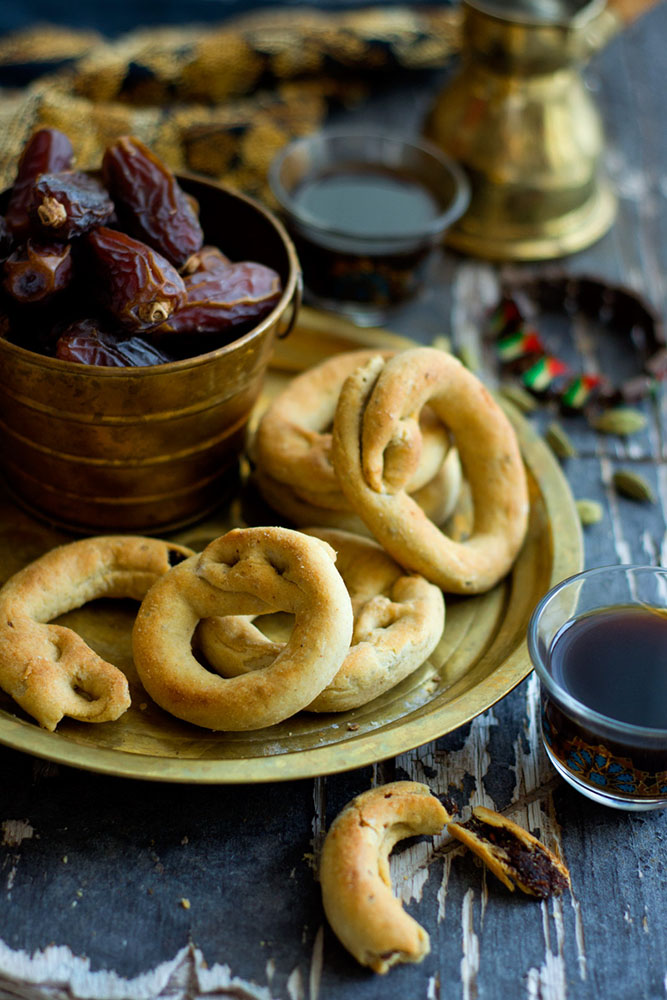
Ka’ek and ma’moul are an example of how local foods were given a symbolic religious identity but in reality come from a terroir and are — yes — ritualistic and yet are a local food, to which a religious label and significance were attached, sometimes even changing with time as faiths changed and yet the local terroir and its cuisine stayed the same.
In this thinking line and from a purely logical standpoint, we can then say that there are no foods attached to one faith, but foods from a terroir that are strongly inscribed in the place and sometimes used by one community for a celebration or a ritual or sometimes cooked more by one community.
As a chef who cooks to celebrate local produce and is inspired by tradition, can I say that the cuisine inspired by my mother’s cooking and grandmother’s cooking is a Catholic cuisine? Or am I cooking Palestinian produce, creating from inspiring Palestinian traditions and interpreting them into my own take?
The idea profoundly disturbs me philosophically that there are cuisines of a faith, whichever faith that is.
I believe that a culinary tradition or a culture is something that you are born into, and that is made up of the cuisine or cuisines that awakened and influenced you. The issue of acknowledging food provenance is a foundation stone to our identities, but faith is something that each of us is free to choose — to remain in or venture beyond the one in which we were raised.
Faith is not a definer of a culinary tradition, even though faith has its influence on how you eat and what and when you eat. We cannot deny celebrations being linked to food and foods that carry a symbolic value in faith, just as we cannot deny that faith and the rules that come with it may allow or outlaw certain foods and traditions and yet, I think there is no food that can be called specific to this or that faith!
We would be denying the diversity and the celebration of two things, the first being the multifaith people living in a place and on the other hand, the multitude of personal histories that shape a people.
Imagine how sad the world of food would look if there were only Hindu Food, Buddhist Food, Yazidi Food, Jewish Food, Christian Food, Muslim Food … rather the multitude of regional cuisines, of local recipes, of tradition transmitted by a select town or village…
The vision of a world divided by faith as a separator of food tradition is frightening as it leads to a vision of exclusivity on a faith basis, or on an ethnic basis…from a region of the world where ancient civilizations and faiths lived, passed, left, disappeared, influenced, inspired, such a vision frightens me and saddens me!
Let us celebrate ma’moul as a Palestinian, Syrian, Lebanese, Jordanian treat every day, and let us leave each other free to attach whichever religious symbolism to it one prefers, and bake ma’moul all year round or only on certain feasts if we feel like it — I would not mind having some everyday as you may have understood!




